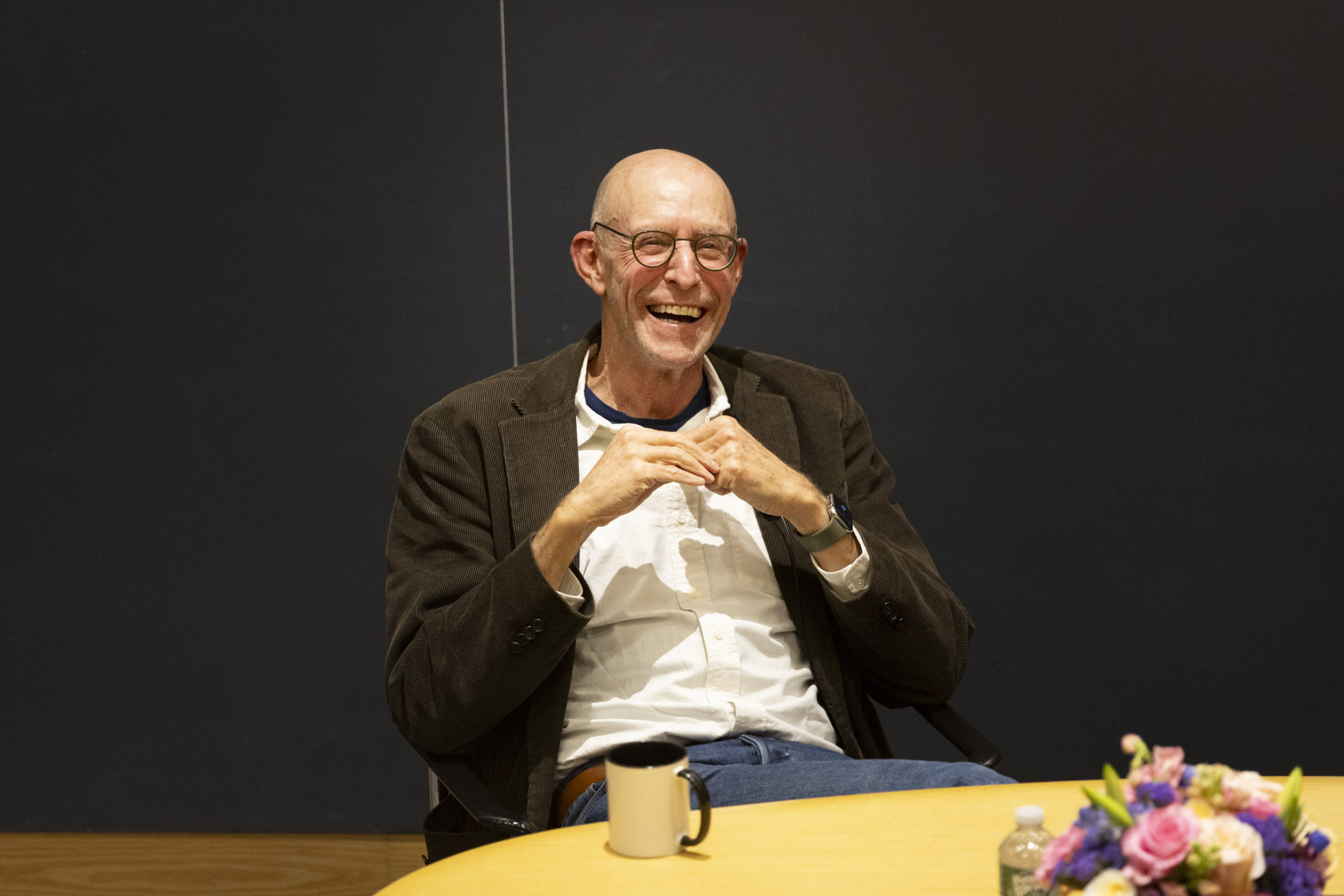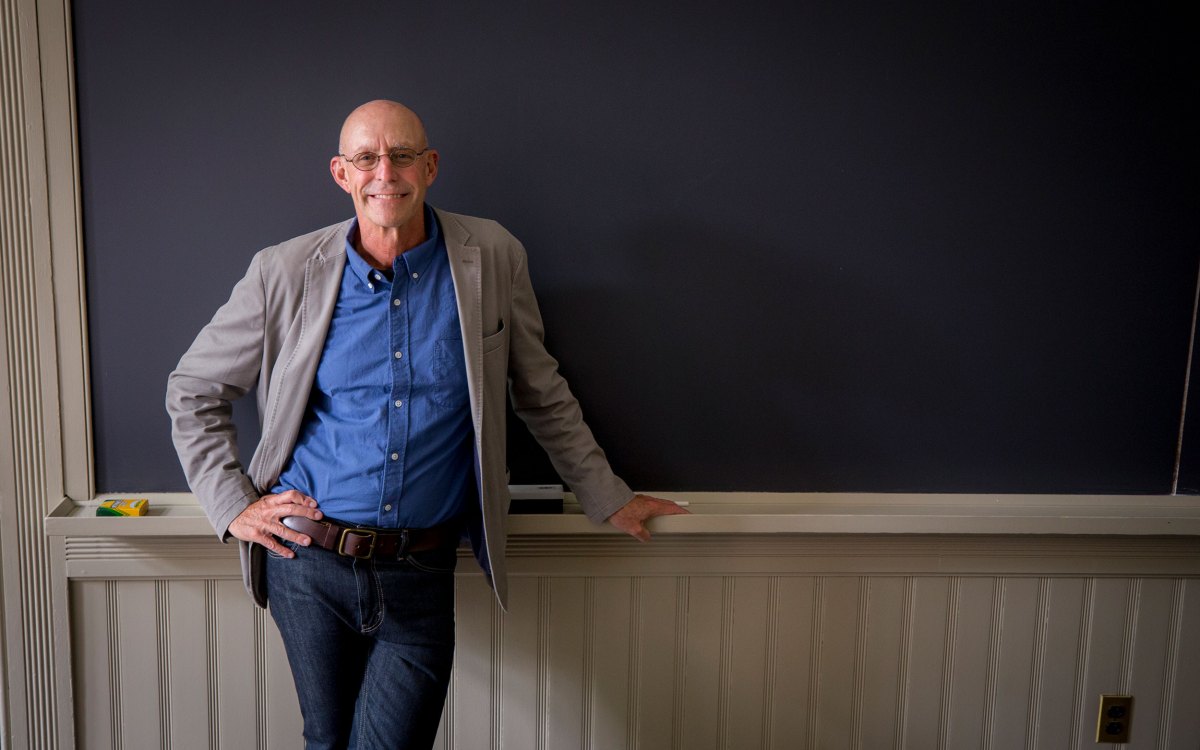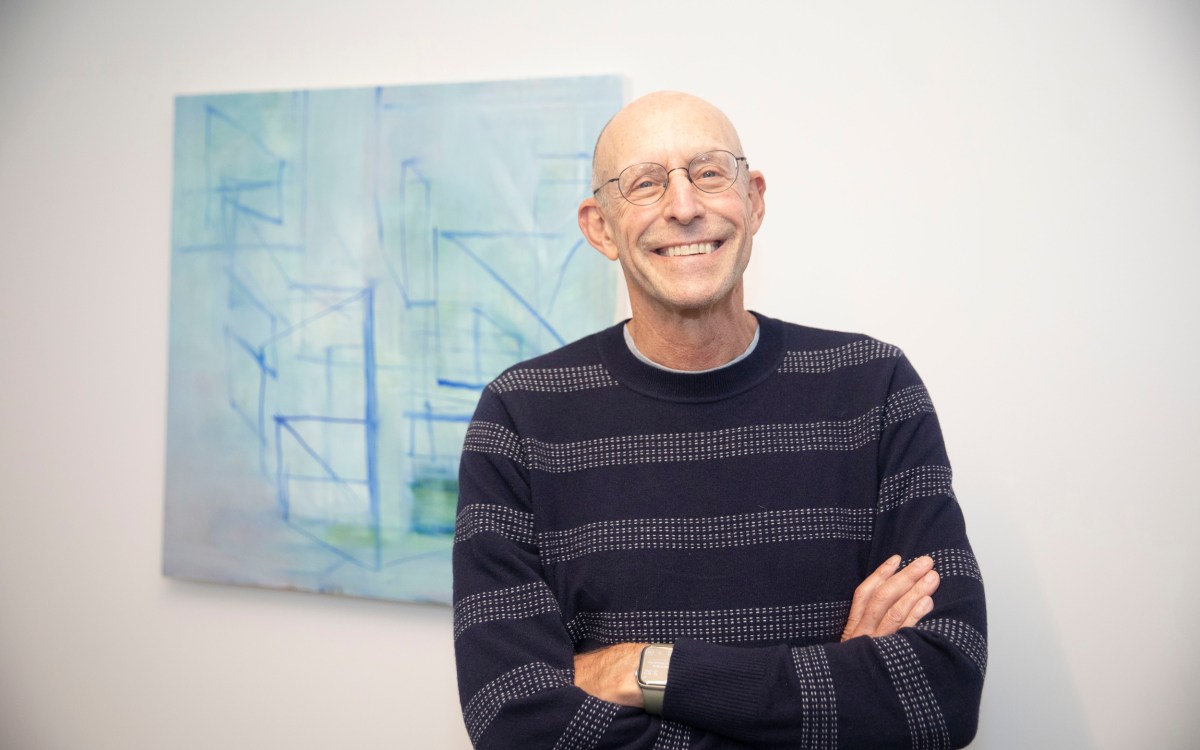
Photos by Niles Singer/Harvard Staff Photographer
Front of mind for Michael Pollan: psychedelics
Author with an experimental side says new generation of researchers will inform medicinal, religious, recreational use
At more than a dozen U.S. universities, a new generation is researching constructive uses of mushrooms, ecstasy, and other consciousness-altering drugs.
Most are focused on hardcore scientific and medical applications, said Michael Pollan, the Lewis K. Chan Arts Lecturer and a professor of the practice of nonfiction writing. “But there are other ways in which I think psychedelics are going to re-enter our society,” he added.
Pollan appeared last Wednesday at Fong Auditorium at something of a kickoff for Harvard’s Study of Psychedelics in Society and Culture initiative, which was established earlier this year with a $16 million gift from the Gracias Family Foundation. An overflow crowd packed the room to hear a preview of the interdisciplinary program, which includes fellowships Pollan will help oversee. But the author of “How to Change Your Mind” (2018) and “This Is Your Mind on Plants” (2021) spent most of the evening answering audience questions on psychedelics, which were criminalized by the U.S. following an initial wave of academic inquiry in the 1950s and ’60s.
Pollan described three possible applications — what he called “containers” — for the drugs today. The first and foremost concerns medicinal benefits, but religious and recreational containers also demand attention, he said.
Within a year, he predicted, the Food and Drug Administration will approve MDMA (aka ecstasy) as a treatment for post-traumatic stress disorder. Approval for Psilocybin (the active ingredient in magic mushrooms) for those suffering from depression should follow in a couple of years. “Presumably, once it’s approved — and we have good evidence that it works — it will be covered by insurance,” Pollan said.
What is unique to the new Harvard project, Pollan stressed, is its integration of expertise from the Divinity School and Law School as well as disciplines from across the Faculty of Arts and Sciences. Scholars at the University of California, Berkeley, will also contribute. This diversity of thought will enable researchers to pursue nonclinical applications including those in the religious realm.
He pointed to evidence of peyote’s sacramental use by some Indigenous peoples “from 6,000 years ago.” As for Psilocybin, Spanish conquistadors encountered it in the Americas 500 years ago. In an aside, Pollan underscored the Aztec name for the drug: teonanacatl. “It’s the catchier word for ‘flesh of the gods,’” he noted. “So it’s exactly like the Christian sacrament. … and this was very upsetting to the Catholic Church. Because [with] this Native sacrament, you really did meet God.”
Many new religious groups are incorporating psychedelics into spiritual practice, noted Pollan, who is particularly interested in a potential test for constitutional law. “The current jurisprudence of the Supreme Court around religious freedom is so radical, I think it’s going to be very hard for them to rule against some of these churches,” he said.
Designing the final container — “what people would dismissively call the recreational path,” he said — presents scholars with opportunities and challenges alike. While the drugs pose a real danger of psychotic break, Pollan argued that they are relatively safe for older adults. In the case of Psilocybin and LSD, he said, they are not habit-forming and “there is no lethal dose.”

In any context, administering these substances requires a level of care that was often lacking in the 1960s, Pollan said. Like many psychedelics researchers and influencers today, he made it a point to credit the late Harvard psychology professor and psychedelics researcher Timothy Leary — fired in 1963 following ethics violations — for introducing the concept of “set and setting.”
“It’s just weird how much the [psychedelics] experience is shaped by the environment and your mindset,” Pollan explained. “That really was Leary’s contribution.”
Attention to set and setting can make for a seriously successful encounter. The author revisited a facilitated Psilocybin trip described in “How to Change Your Mind,” in which he felt himself merge with a recording of Yo-Yo Ma playing a Bach cello suite. “My ego, my sense of self, just detonated into a cloud of blue Post-it notes,” Pollan recalled Wednesday in one evocative turn.
Professor Bruno Carvalho, interim director of the Mahindra Humanities Center, which hosted the event, at one point asked Pollan whether the experiences described in his work had changed his writing in some permanent way.
At first, he hesitated. A few beats later, the answer arrived with confidence: “I think psychedelics have changed me.”







